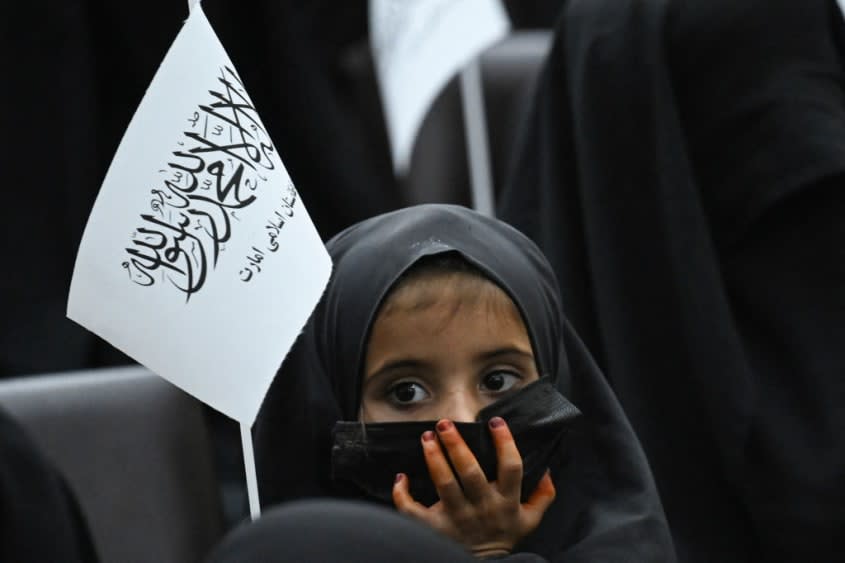Taliban says Afghan women can continue college, but not alongside men and only in Islamic dress

The Taliban on Sunday announced that Afghan women will be allowed to continue studying at universities, including post-graduate studies, but universities will be strictly segregated by gender and women must dress in burqas. "We will not allow boys and girls to study together," said Abdul Baqi Haqqani, higher education minister in the Taliban's new all-male government. "We will not allow co-education."
Haqqani also said the new government will review the subjects being taught, but added that he wants Afghan university graduates to be competitive with their peers in the region and the world.
The last time the Taliban governed Afghanistan, from 1996 to 2001, they barred girls and women from education and most other aspects of public life. Once the U.S. toppled the Taliban and helped set up a new government, universities were coed and there was no dress code — though, The Associated Press notes, "the vast majority of female university students opted to wear headscarves in line with tradition." Haqqani said "we will start building on what exists today," not try to turn the clock back 20 years.
When the Taliban seized power and in the months before, it tried to assure the world and fellow Afghans that it had changed over the past 20 years and would allow a more inclusive society, within limits. But women are barred from sports and the Taliban has banned and violently suppressed protests in the past week, including from women demanding greater rights.
There are "tens of thousands of urban Afghans who had until recently spent their adult lives in a country propped up by Western forces, surrounded by the liberal rhetoric that came alongside two decades of war," The Washington Post reports. "While the billions of dollars spent on the country's security forces and government vanished with the Taliban takeover, this generation of young Afghans determined to live in a more tolerant society could be one of the few enduring legacies of foreign intervention and investment here."
"The Taliban call us the 'American generation,' and they try to say we are not Muslims because we have been influenced by Western thoughts," Rohullah Raziqi, a local journalist in Kabul who has now joined the protests, told the Post. "But it's not true. I just believe in freedom."

